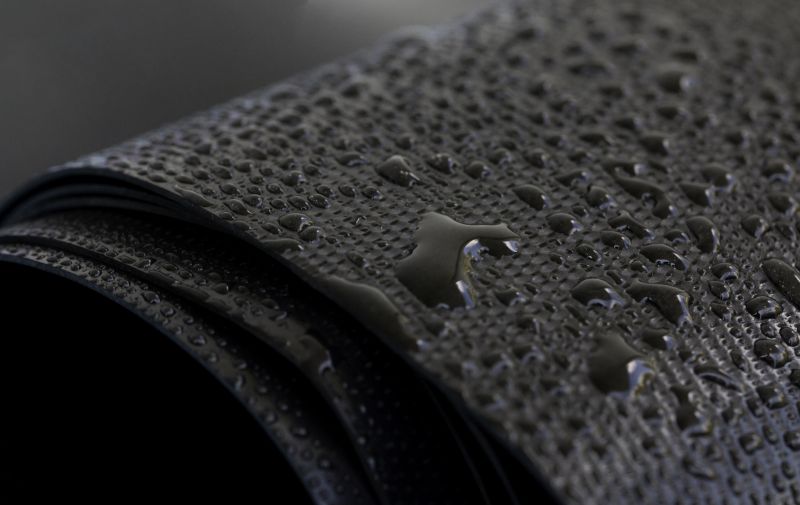Top Waterproofing Products for Reliable Moisture Protection
Explore the leading waterproofing solutions designed to safeguard your property from water damage and ensure lasting durability.
 Waterproofing products are essential for protecting structures from water intrusion, which can lead to damage, mold growth, and structural deterioration. These products come in various forms to suit different applications, whether for foundations, roofs, basements, or outdoor surfaces. Proper selection and application of waterproofing materials can significantly enhance the durability and longevity of a building or surface. In Roswell, GA, where weather conditions can vary, choosing the right waterproofing solutions is crucial for maintaining the integrity of residential and commercial properties.
Waterproofing products are essential for protecting structures from water intrusion, which can lead to damage, mold growth, and structural deterioration. These products come in various forms to suit different applications, whether for foundations, roofs, basements, or outdoor surfaces. Proper selection and application of waterproofing materials can significantly enhance the durability and longevity of a building or surface. In Roswell, GA, where weather conditions can vary, choosing the right waterproofing solutions is crucial for maintaining the integrity of residential and commercial properties.
Top Overall Option
High-Performance Liquid Waterproofing Coating
A versatile liquid coating designed to provide a seamless, flexible barrier against water intrusion on roofs, walls, and foundations. It adheres well to various surfaces, offers excellent adhesion, and can accommodate minor structural movements. This type of waterproofing product is suitable for both new applications and repairs, making it a reliable choice for a range of projects.
Types of Products For Waterproofings
Liquid Waterproofing Membranes
Flexible liquid coatings that form a continuous barrier on surfaces like roofs and basements, ideal for irregular shapes and complex structures.
Sheet Membranes
Pre-formed sheets made of rubber or asphalt used to line foundations and roofs, providing durable water resistance.
Bituminous Coatings
Asphalt-based coatings suitable for roofs and foundations, offering a thick, protective layer against water penetration.
Polyurethane Coatings
Elastomeric coatings that provide waterproofing with high flexibility, often used on roofs and decks.
Cementitious Waterproofing
Waterproofing solutions that incorporate cement, commonly used for underground structures and tanks.
Sealants and Caulks
Flexible sealants used to fill cracks, joints, and gaps to prevent water seepage in various surfaces.
Waterproofing Paints
Coatings that can be applied like paint to exterior walls and surfaces for an added water-resistant layer.
Crack Fillers
Specialized products designed to fill and seal cracks in concrete and masonry surfaces to prevent water entry.
Spray-On Waterproofing
Aerosol or spray-applied solutions that create a waterproof barrier on various surfaces quickly and easily.
Hydrophobic Sealants
Sealants that repel water on contact, ideal for outdoor surfaces and porous materials.
Foundation Waterproofing Systems
Comprehensive systems including membranes, coatings, and drainage solutions designed specifically for foundations.
Popular Choices
Widely used for roof and wall applications, these coatings provide a seamless waterproof barrier.
Durable and flexible membranes suitable for basements and roofing projects.
Common for flat roofs and low-slope surfaces, offering reliable water resistance.
Popular for decks and outdoor surfaces, providing waterproofing with high elasticity.
Easy to apply for underground and tank waterproofing, often used in construction projects.
Flexible coatings that expand and contract with roof movements, helping to prevent leaks.
Effective for sealing joints and cracks in concrete and masonry to prevent water infiltration.
Applied to exterior walls to add a protective water-resistant layer.
Sealants that repel water on contact, suitable for porous surfaces like stone and brick.
Integrated solutions combining membranes and drainage to protect below-grade structures.
Different types of waterproofing products are designed to address specific needs. Liquid sealants and coatings are often used for roofs and walls, providing a seamless barrier against water. Membranes, whether sheet or liquid-applied, are common for foundation waterproofing and basement walls. Sealants and caulks are ideal for small cracks and joints, preventing water seepage at vulnerable points. Additionally, waterproofing paints and coatings can be applied to exterior surfaces to create a protective layer that resists water penetration.
Application techniques and compatibility with existing materials are important considerations when selecting waterproofing products. Proper surface preparation, including cleaning and priming, ensures optimal adhesion and performance. Some products are more flexible and can accommodate structural movement, while others are more rigid and suitable for static surfaces. It’s also essential to consider the environmental conditions, such as humidity and temperature, which can influence the effectiveness of certain waterproofing solutions. Regular maintenance and inspections can help identify potential issues early, allowing for timely repairs and reapplications.
Investing in quality waterproofing products tailored to specific needs can help safeguard properties in Roswell, GA, from water-related damage. Whether for new construction projects or renovation efforts, understanding the variety of available products and their appropriate uses is key to achieving long-lasting results.
Key Buying Considerations
- Identify the specific area or surface requiring waterproofing to select the most suitable product type.
- Consider the compatibility of the waterproofing material with existing surfaces and substrates.
- Evaluate the flexibility and elasticity of the product, especially for surfaces subject to movement or expansion.
- Check the product's resistance to UV rays and weather exposure if used outdoors.
- Determine the ease of application and whether professional installation is recommended.
- Review the drying and curing times to plan your project timeline effectively.
- Assess the durability and lifespan expectations of the waterproofing solution in your environment.
- Ensure the product is suitable for the temperature range during application and curing.
- Consider the level of water exposure and pressure the product needs to withstand.
- Look into the maintenance requirements and whether reapplication or touch-ups are necessary over time.
- Verify if the product is compatible with other building materials and coatings.
- Check for any specific application instructions, such as surface preparation or priming.
- Review safety data and handling instructions to ensure safe use during application.
- Determine if the product is suitable for both interior and exterior applications based on your needs.
- Research customer reviews and expert recommendations for insights into real-world performance.
